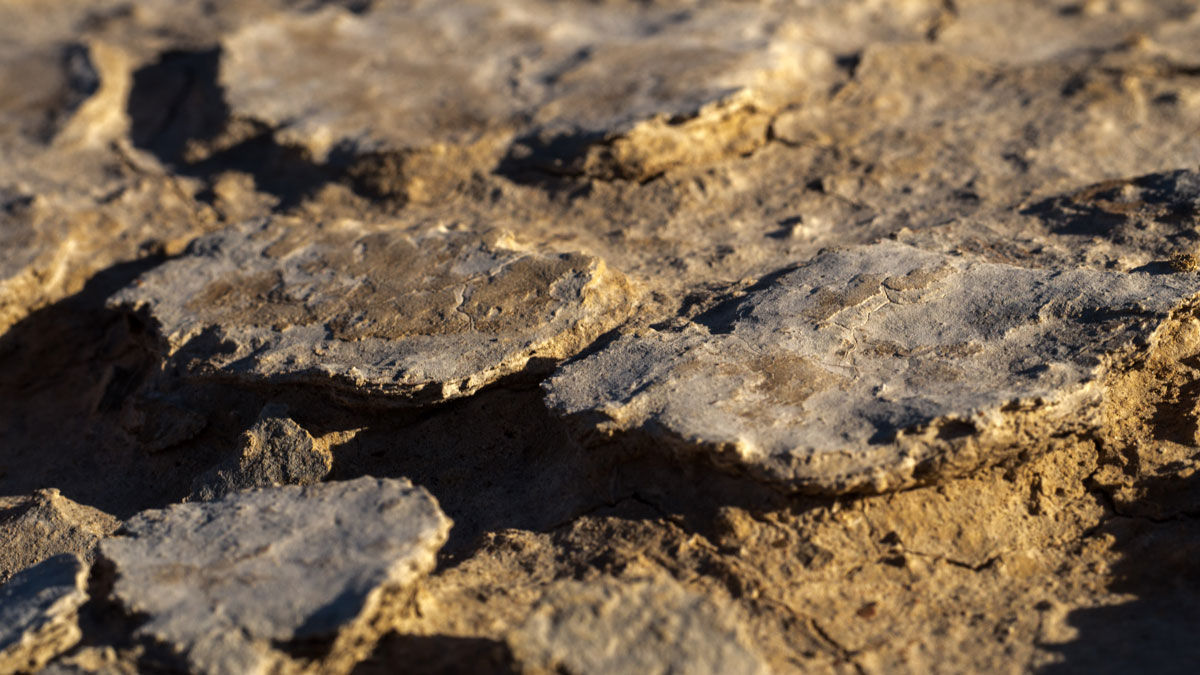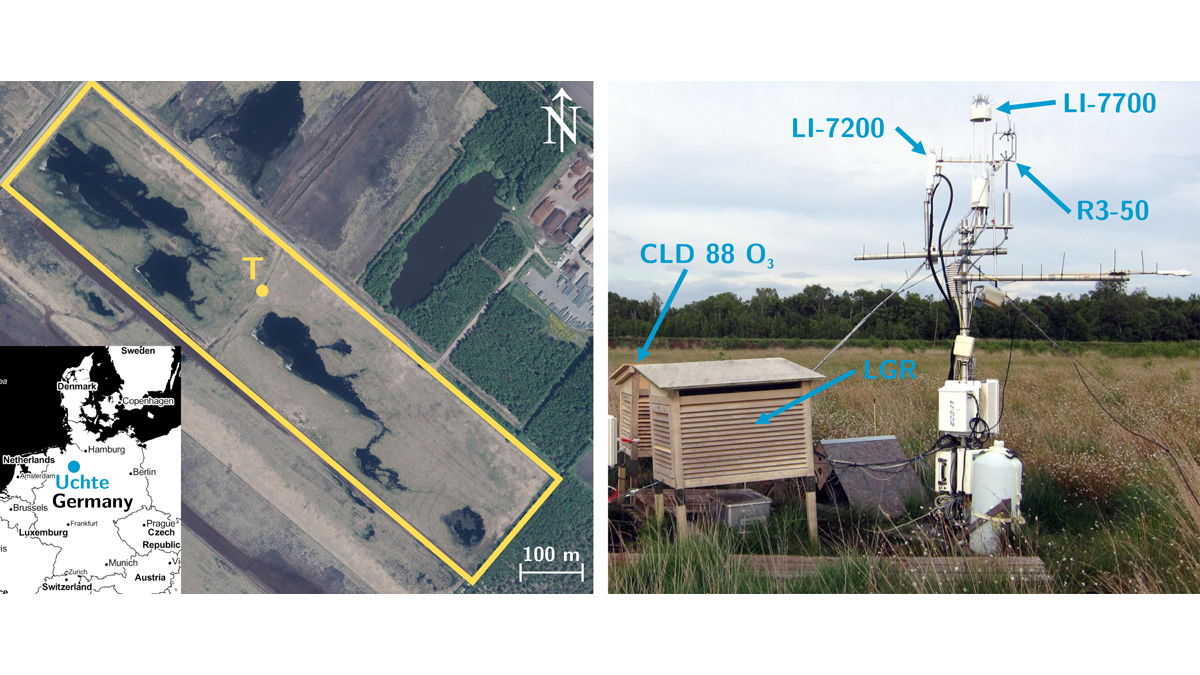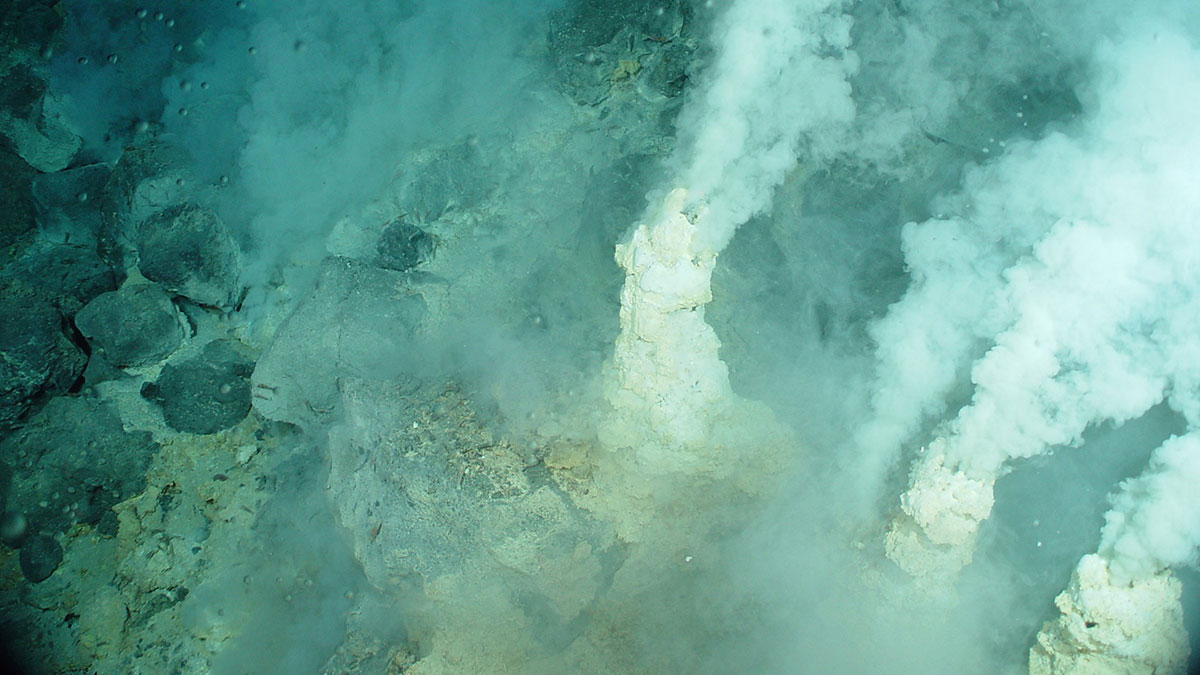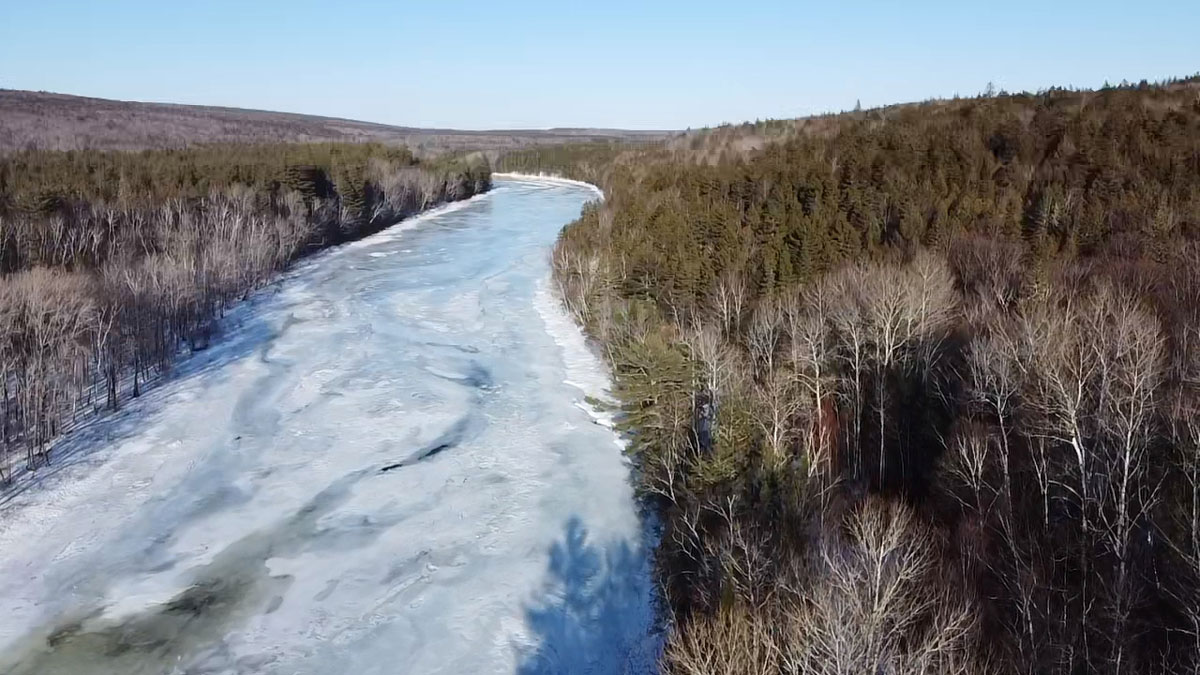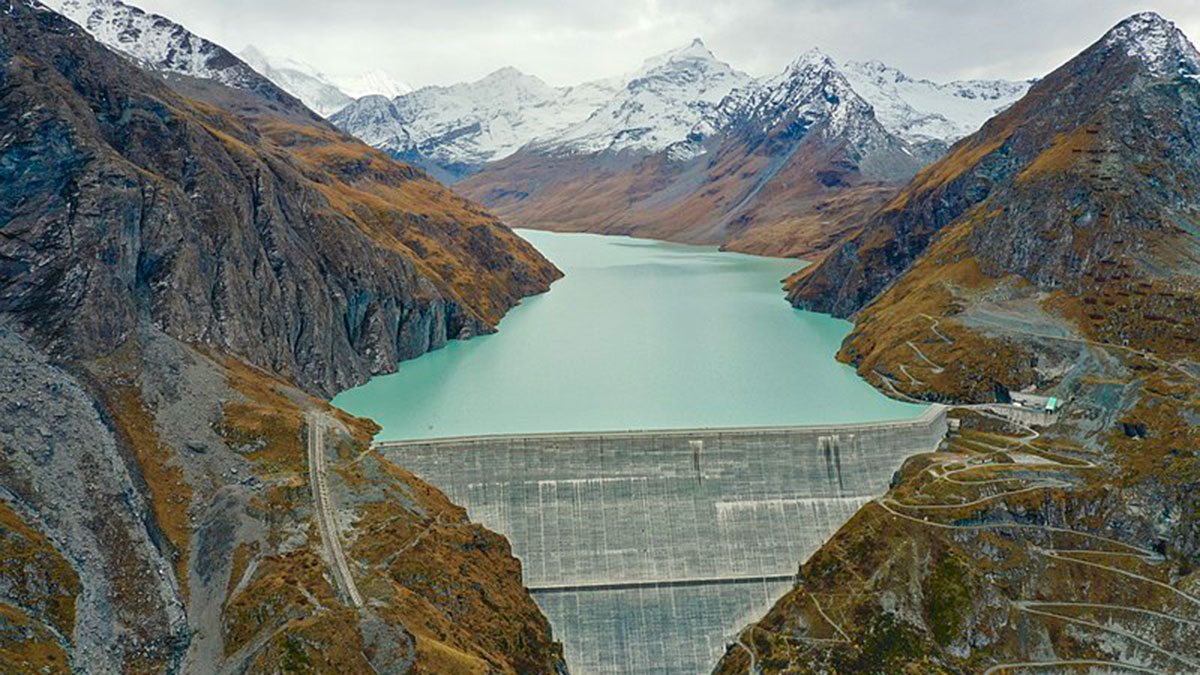Results of in situ experiments on natural microbial communities suggest that biological crusts can protect soils from erosion, but their protective role could be compromised under predicted future climate scenarios.
Journal of Geophysical Research: Biogeosciences
A Fresh View of Microbial Life in Yellowstone’s Hot Springs
Research on the habitat ranges of microorganisms in Yellowstone’s hot springs reveals an overlap between cyanobacteria and algae.
Being Cool is a Slow Ride When You’re a Restored Wetland
Restoring formerly drained peat wetlands can mitigate climate-warming emissions but the reward takes patience.
Drop in Rain Forest Productivity Could Speed Future Climate Change
As temperatures rise, tropical forests will become more stressed and photosynthesize less.
Hydrothermal Microbes Can Be Green Energy Producers
In ultramafic, reducing environments, forming microbial proteins can actually release energy.
Tubos de lava terrestres podrían ofrecer información sobre la vida extraterrestre
Una nueva investigación encuentra que Actinobacteria en cuevas de lava fijan carbón y sobreviven independientemente de aportes superficiales, ofreciendo una nueva perspectiva en la investigación de la vida fuera de la Tierra.
River Ice Can Shape Watershed Ecology
As river ice cover decreases, the physical and biological changes to river ecosystems vary with the watershed characteristics and river size.
Understanding Tremors Through Tree Rings
Researchers look to carbon isotopes and cell-level wood anatomy to understand how seismic-induced changes in water availability affect tree growth.
Shedding Light on Microbial Communities in Deep Aquifers
Researchers use a packer system to study the microbial communities living in waters sampled from deep, uncontaminated peridotite aquifers.
Researchers Zero In on Methane Released from Reservoirs
Using new methods, researchers can estimate how much methane is released each day from reservoirs—an important step in estimating global methane emissions.

